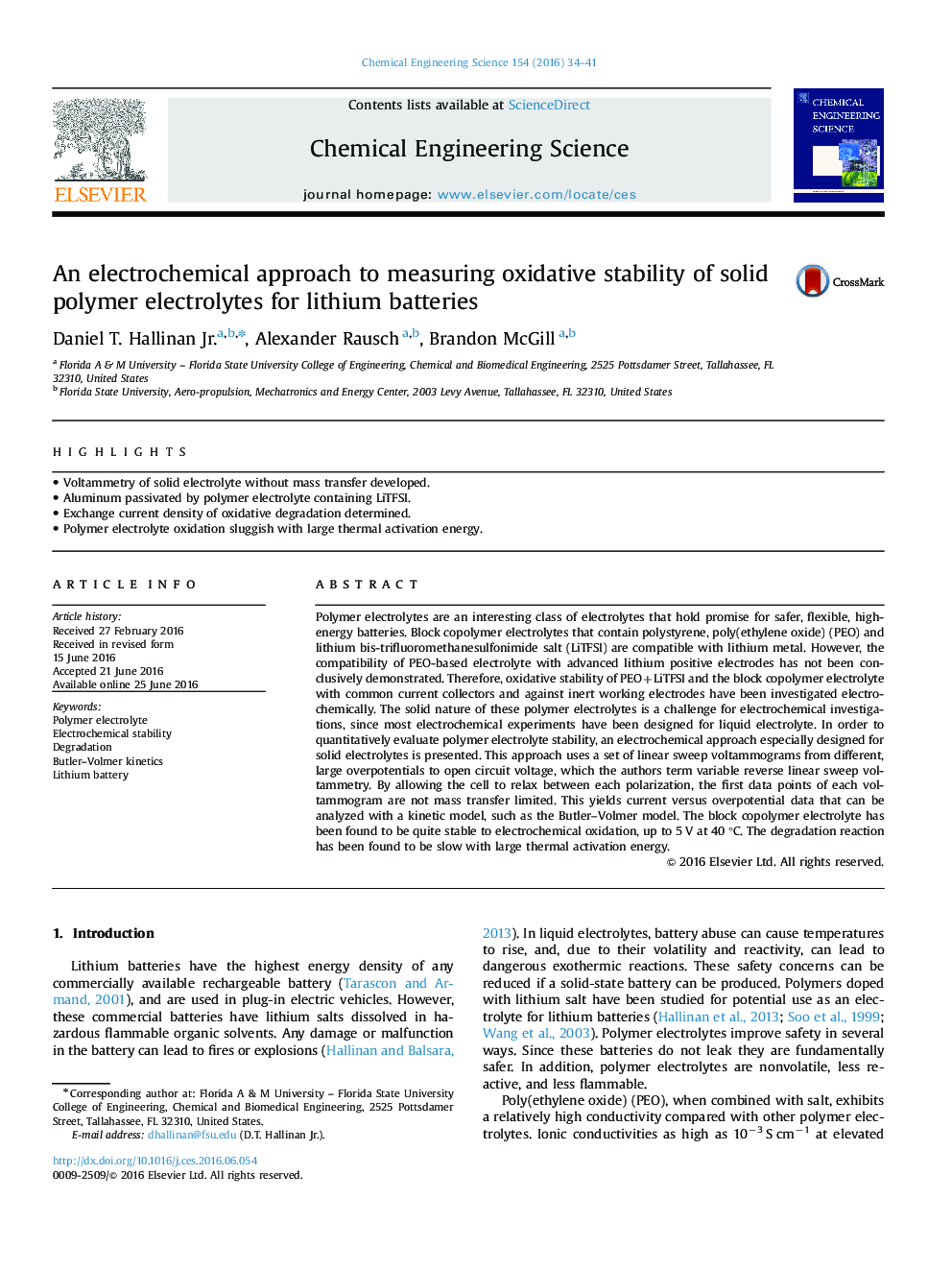| کد مقاله | کد نشریه | سال انتشار | مقاله انگلیسی | نسخه تمام متن |
|---|---|---|---|---|
| 6468013 | 1423265 | 2016 | 8 صفحه PDF | دانلود رایگان |
- Voltammetry of solid electrolyte without mass transfer developed.
- Aluminum passivated by polymer electrolyte containing LiTFSI.
- Exchange current density of oxidative degradation determined.
- Polymer electrolyte oxidation sluggish with large thermal activation energy.
Polymer electrolytes are an interesting class of electrolytes that hold promise for safer, flexible, high-energy batteries. Block copolymer electrolytes that contain polystyrene, poly(ethylene oxide) (PEO) and lithium bis-trifluoromethanesulfonimide salt (LiTFSI) are compatible with lithium metal. However, the compatibility of PEO-based electrolyte with advanced lithium positive electrodes has not been conclusively demonstrated. Therefore, oxidative stability of PEO+LiTFSI and the block copolymer electrolyte with common current collectors and against inert working electrodes have been investigated electrochemically. The solid nature of these polymer electrolytes is a challenge for electrochemical investigations, since most electrochemical experiments have been designed for liquid electrolyte. In order to quantitatively evaluate polymer electrolyte stability, an electrochemical approach especially designed for solid electrolytes is presented. This approach uses a set of linear sweep voltammograms from different, large overpotentials to open circuit voltage, which the authors term variable reverse linear sweep voltammetry. By allowing the cell to relax between each polarization, the first data points of each voltammogram are not mass transfer limited. This yields current versus overpotential data that can be analyzed with a kinetic model, such as the Butler-Volmer model. The block copolymer electrolyte has been found to be quite stable to electrochemical oxidation, up to 5 V at 40 °C. The degradation reaction has been found to be slow with large thermal activation energy.
Journal: Chemical Engineering Science - Volume 154, 2 November 2016, Pages 34-41
